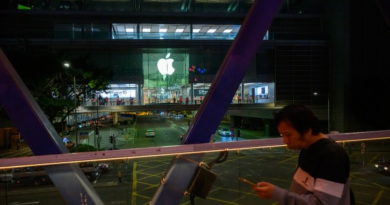Tesla recalls 362,758 vehicles over Full Self-Driving software safety concerns

Tesla has issued a recall of its Full Self-Driving software, an advanced driver assistance system that federal safety regulators say could allow vehicles to act unsafe around intersections and cause crashes.
Tesla said it is recalling certain 2016-2023 Model S, Model X, 2017-2023 Model 3, and 2020-2023 Model Y vehicles equipped with Full Self-Driving Beta (FSD Beta) software or pending installation. The recall, which was posted on the National Highway Traffic Safety Administration’s website, affects as many as 362,758 vehicles equipped with the software, according to the notice.
Tesla will release an over-the-air software update, free of charge, to fix the issue.
Tesla vehicles come standard with a driver assistance system branded as Autopilot. For an additional $15,000, owners can buy “full self-driving,” or FSD — a feature that CEO Elon Musk has promised for years will one day deliver full autonomous driving capabilities. Tesla vehicles are not self-driving.
Instead, FSD includes a number of automated driving features that still require the driver to be ready to take control at all times. It includes the parking feature Summon as well as Navigate on Autopilot, an active guidance system that navigates a car from a highway on-ramp to off-ramp, including interchanges and making lane changes. The system is also supposed to handle steering on city streets and recognize and react to traffic lights and stop signs.
According to the notice, the FSD Beta system may allow the vehicle to act unsafe around intersections, such as traveling straight through an intersection while in a turn-only lane, entering a stop sign-controlled intersection without coming to a complete stop, or proceeding into an intersection during a steady yellow traffic signal without due caution. In addition, the system may respond insufficiently to changes in posted speed limits or not adequately account for the driver’s adjustment of the vehicle’s speed to exceed posted speed limits, the notice said.
The issue was discovered during NHTSA’s engineering analysis and testing of the system. NHTSA said it found that in certain situations, Tesla’s Autosteer on City Streets feature led to an unreasonable risk to motor vehicle safety based on insufficient adherence to traffic safety laws. As required by law and after discussions with NHTSA, Tesla launched a recall to repair those defects, the agency said in an emailed statement.
NHTSA reached out to Tesla on January 25 as part of “regular ongoing communications” between Tesla and the agency relating to Autopilot and FSD Beta, according to the Defect Information Report, which includes a chronology of events leading up the recall. At that time, NHTSA advised Tesla that it had identified potential concerns related to certain operational characteristics of FSD Beta in four specific roadway environments.
Tesla met with NHTSA “numerous times” over the next several days to discuss the agency’s concerns and Tesla’s proposed over-the-air improvements in response, according to the report.
“NHTSA will continue to monitor the recall remedies for effectiveness,” the agency said. “This recall seeks to address a specific set of concerns identified by the agency.”
The agency added that the recall does not address the full scope of NHTSA’s EA22-002 investigation into Tesla’s Autopilot and associated vehicle systems. That investigation remains open and active.
FSD beta software — from its name and Musk’s promises around its capabilities to its rollout and safety concerns — has been controversial. It’s also attracted scrutiny from regulators.
In January, Tesla disclosed that the U.S. Department of Justice asked for documents related to its branded Full Self-Driving and Autopilot advanced driver-assistance system.




